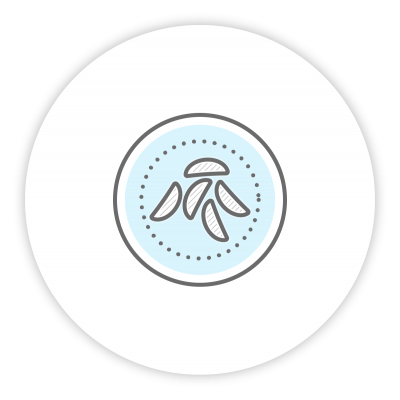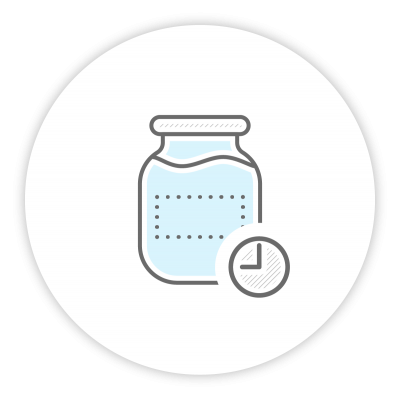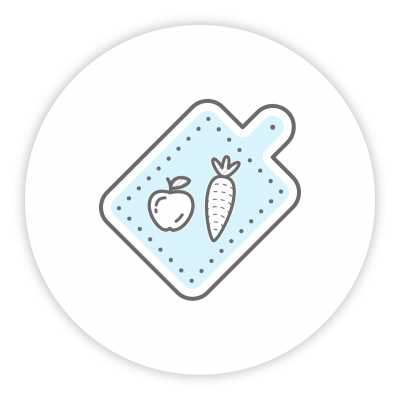Young children need enough nutritious food every day to grow healthy, strong and smart. At around 6 months old, your baby is growing quickly and needs more energy and nutrients than at any other time in her life.

After 6 months, breastmilk is still your baby’s main source of energy and nutrients, but solid foods should now be added.

Your baby has a small stomach and needs to be eating small amounts of soft nutritious food frequently throughout the day.

In addition to grains and tubers, feed your baby a variety of foods – especially animal foods (dairy, eggs, meat, fish and poultry), fruits and vegetables – every day.
At 6 months of age, breastmilk continues to be a vital source of nutrition; but it’s not enough by itself. You need to now introduce your baby to solid food, in addition to breastmilk, to keep up with her growing needs.
Be sure you give your baby her first foods after she has breastfed, or between nursing sessions, so that your baby continues to breastfeed as much as possible.
When you start to feed your baby solid food, take extra care that she doesn’t become sick. As she crawls about and explores, germs can spread from her hands to her mouth. Protect your baby from getting sick by washing your and her hands with soap before preparing food and before every feeding.
Your baby's first foods
When your baby is 6 months old, she is just learning to chew. Her first foods need to be soft so they’re very easy to swallow, such as porridge or well mashed fruits and vegetables. Did you know that when porridge is too watery, it doesn’t have as many nutrients? To make it more nutritious, cook it until it’s thick enough not to run off the spoon.
Feed your baby when you see her give signs that she’s hungry – such as putting her hands to her mouth. After washing hands, start by giving your baby just two to three spoonfuls of soft food, twice a day. At this age, her stomach is small so she can only eat small amounts at each meal.
The taste of a new food may surprise your baby. Give her time to get used to these new foods and flavours. Be patient and don’t force your baby to eat. Watch for signs that she is full and stop feeding her then.
As your baby grows, her stomach also grows and she can eat more food with each meal.
Feeding your baby: 6–8 months old
Feed your baby half a cup of soft food two to three times a day. Your baby can eat anything except honey, which she shouldn’t eat until she is a year old. You can start to add a healthy snack, like mashed fruit, between meals. As your baby gets increasing amounts of solid foods, she should continue to get the same amount of breastmilk.
Feeding your baby: 9-11 months old
Your baby can take half a cup of food three to four times a day, plus a healthy snack. Now you can start to chop up soft food into small pieces instead of mashing it. Your baby may even start to eat food herself with her fingers. Continue to breastfeed whenever your baby is hungry.
Each meal needs to be both easy for your baby to eat and packed with nutrition. Make every bite count.
Foods need to be rich in energy and nutrients. In addition to grains and potatoes, be sure your baby has vegetables and fruits, legumes and seeds, a little energy-rich oil or fat, and – especially – animal foods (dairy, eggs, meat, fish and poultry) every day. Eating a variety of foods every day gives your baby the best chance of getting all the nutrients he needs.
If your baby refuses a new food or spits it out, don’t force it. Try again a few days later. You can also try mixing it with another food that your baby likes or squeezing a little breastmilk on top.
Feeding non-breastfed babies
If you’re not breastfeeding your baby, she’ll need to eat more often. She’ll also need to rely on other foods, including milk products, to get all the nutrition her body needs.
- Start to give your baby solid foods at 6 months of age, just as a breastfed baby would need. Begin with two to three spoonfuls of soft and mashed food four times a day, which will give her the nutrients she needs without breastmilk.
- From 6–8 months old, she’ll need half a cup of soft food four times a day, plus a healthy snack.
- From 9–11 months old, she’ll need half a cup of food four to five times a day, plus two healthy snacks.
References:
Unicef. “Parenting – feeding your baby 6-12 months”
https://www.unicef.org/parenting/food-nutrition/feeding-your-baby-6-12-months

